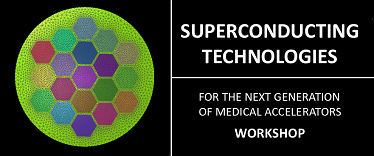-
Fernando Berdascas (Beta Pharma Technologies)24/11/2016, 15:20
Radioisotope production is the first step in radiopharmaceuticals production workflow. In an accelerator based radiopharmaceuticals production facility, the impact of the radiopharmacy equipment on its global footprint is sometimes as important as the accelerator itself. Accelerator design, size and energy has a direct impact on the global installation scale: power electronics, shielding,...
Go to contribution page -
Javier Munilla (CIEMAT)24/11/2016, 15:40
The delivery of FDG from large central production centres has demonstrated to be a cost-effective solution for populated areas, but the interest on other tracers has raised expectations that cannot be satisfied by using that concept. A new production method aimed to provide in-situ single doses of 18F and, fundamentally, 11C-radiotracers, would satisfy the requisites for non-standard PET...
Go to contribution page -
Raymond Pommet (PBM-ALCEN)24/11/2016, 16:00
Molecular imaging with Positron Emission Tomography (PET) is playing an important role in patient care, medical research, and pharmaceutical development. But limitations in short-lived positron emitters availability restrict the use of new radiopharmaceuticals that therefore remains limited to a small number of advanced research facilities. In order to enlarge the use of molecular imaging for...
Go to contribution page -
Timothy Antaya (Antaya Science & Technology)24/11/2016, 16:20
Over the past few years Mo-99m supply instability coupled with directives to eliminate the production dependence on HEU, have stimulated a number of new accelerator and reactor based concepts for the production of the important tracer Tc-99m following the conventional M0-99m carrier route. However, if one were to start from scratch today Tc-99m would not likely be used. There is a better...
Go to contribution page -
Gregory Sharkov (NIIFTA)24/11/2016, 17:10
Two topics will be discussed in the presentation. Firstly, a new high power efficient RF generator with outstanding availability has been developed, tested and is commercially available. The system meets the customer demands on compactness, usability, high reliability. Special modular architecture allowed to design scalable solution for various frequencies, output powers and duty cycles (up to...
Go to contribution page -
Simon Stegemann (KU Leuven)24/11/2016, 17:30
MEDICIS-PROMED is a network that bridges different disciplines across fundamental research institutions, private companies and hospitals for the production of innovative medical isotopes and radiopharmaceuticals for the imaging and therapy of cancer. Radioisotopes are commonly used for functional imaging and are expected to play an enhanced role in treatment of various types of cancer.
Go to contribution page
At CERN... -
Jordi Llop (CIC BiomaGUNE)24/11/2016, 17:50
Radiotracers labeled with positron and gamma emitters can be tracked non-invasively after administration to a living organism. This is the basics of nuclear imaging, which has been traditionally used in the clinical setting for the early diagnose/evaluation of the response to treatment of a variety of diseases. With the widespread installation of cyclotrons around the world and the...
Go to contribution page
Choose timezone
Your profile timezone:
